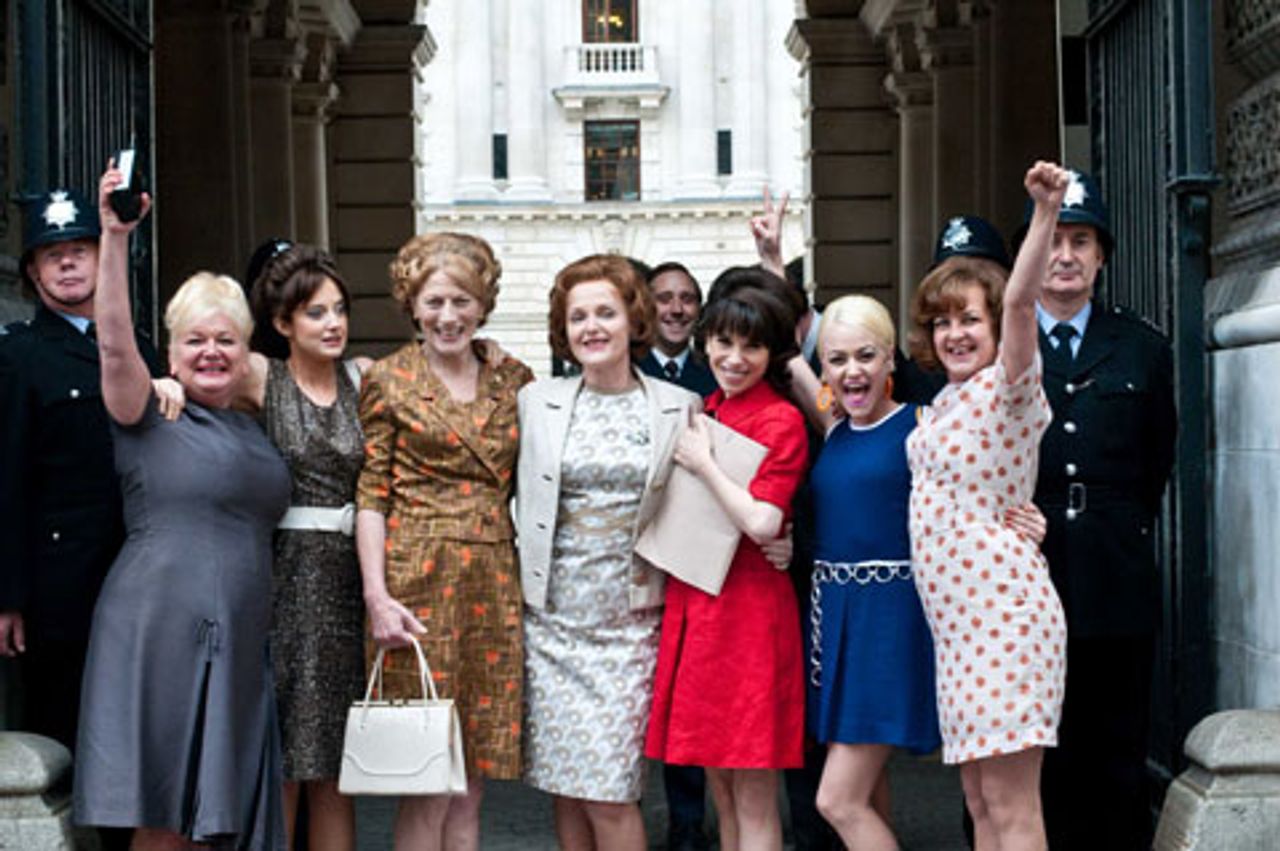This comment originally appeared as part of the coverage of the 2010 Toronto film festival earlier this year.
In 1968, the Ford Dagenham factory in Essex, England, employed some 55,000 workers. Of these, 187 were women who sewed car seats in the most dilapidated part of the plant. Working long hours for low pay in extremely exploitative conditions, the women began industrial action when they were reclassified as “unskilled,” despite performing the same work as men placed in the semi-skilled grade. In addition, the rate of pay was 85 percent of the male rate. Confronted by Ford's refusal to upgrade them, they walked out and stayed out for three weeks. They were joined by the 195 women at Ford's Halewood plant in Merseyside.
 Made In Dagenham
Made In DagenhamBritish director Nigel Cole’s Made In Dagenham is a dramatization of the struggle. With Sally Hawkins as Rita O’Grady, the strike’s fearless and principled leader, Cole shows women with no previous experience in collective struggle combating the auto giant. This, while trying to handle the immense pressures building up in their domestic lives. Bob Hoskins plays a sympathetic union rep who mentors Rita throughout the ordeal.
Taking on a hostile union leadership that is colluding with Ford’s Detroit management—and with the backing of the men in the plant to whom Rita makes a direct appeal—the women’s strike brings Ford’s entire car production to a standstill.
The impact of the action forces Barbara Castle (Miranda Richardson), employment secretary in Harold Wilson's Labour government, to intervene. In the end, the Ford women win 92 percent of the men's rate. Their battle is instrumental in bringing about the Equal Pay Act of 1970.
Cole’s movie is an attractive package with a populist veneer. Intercut with documentary footage of the factory, the strike and its resolution, the movie has charm and many elements of the director’s light character comedies such as Calendar Girls (2003) and Saving Grace (2000).
But Cole distorts history, bending his film in a feminist direction. The Dagenham women are portrayed not merely as adversaries of Ford and the trade union bureaucracy. They are also burdened with somewhat silly and ineffectual—and worse—men, in their personal lives—although Hawkins brings feeling and complexity into her portrayal of the wife of a fellow Ford worker.
In general, Cole wants his gutsy women to be pulverizing the retrograde world of men. Even Labour Party hack Barbara Castle, wonderfully played as a human machete by Richardson, is rendered as an intrepid feminist heroine running roughshod over Ford honchos--and making her prime minister boss (Wilson) look like a dodo. One would never know that in 1968, Castle attempted to introduce the Labour government’s anti-working class prices and incomes policy. And a year later, her infamous white paper, “In place of Strife,” attacked the right to strike.
* * *
 Another Year
Another YearA brief note:
Mike Leigh has directed a drama of everyday life, and the aging that goes along with it, in Another Year. The film is sensitive and amusing, and benefits greatly from performers such as Jim Broadbent and Lesley Manville, but one can’t help feeling that Leigh ought to have something more concrete and incisive to say about British life.
